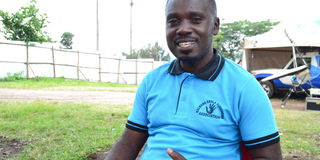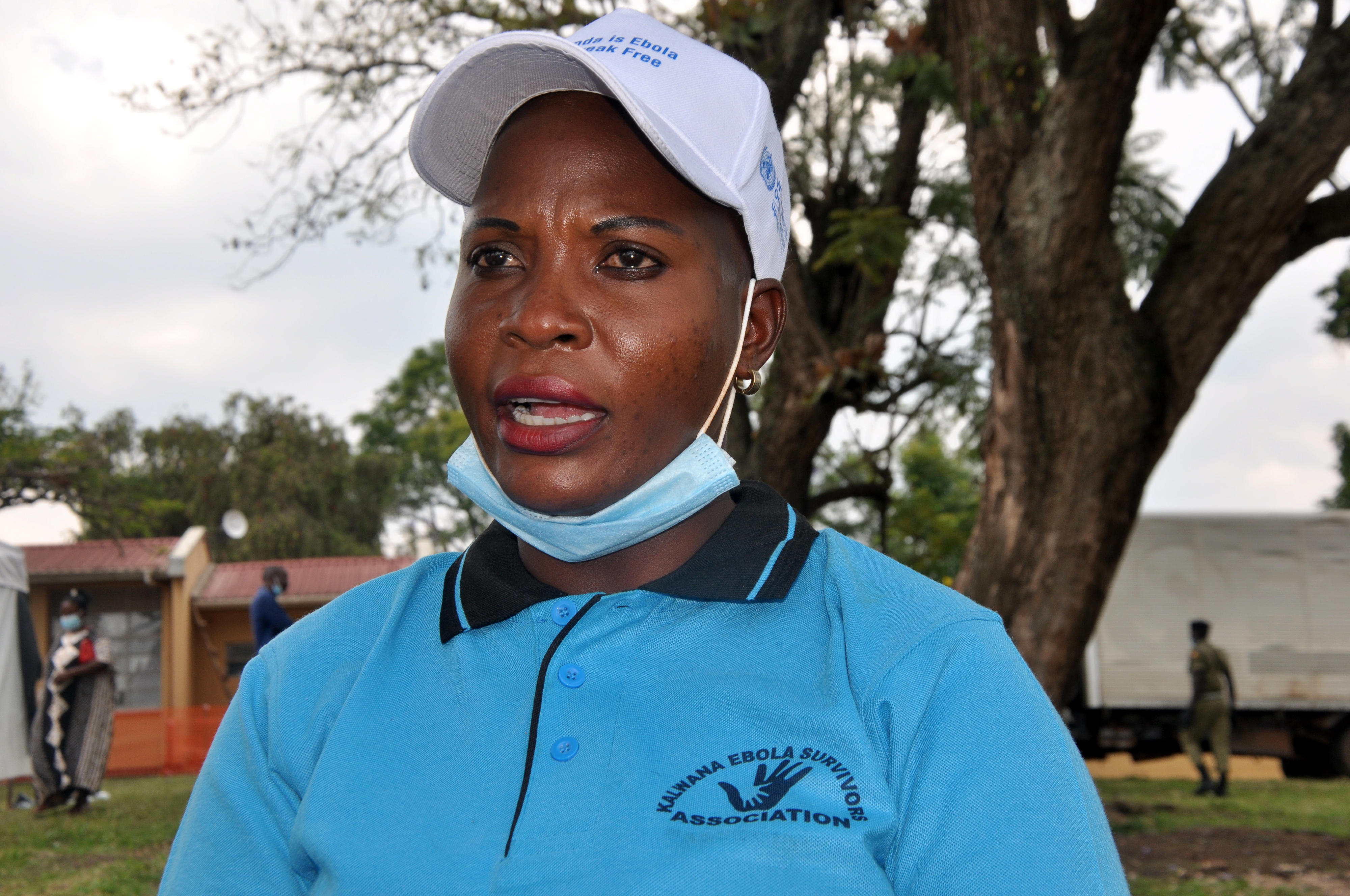Prime
The clinician who got Ebola from his patient

Mr Bernard Bwambale, a resident of Kalwana in Kassanda District, who recovered from the disease. PHOTO | DAN WANDERA
What you need to know:
- On January 11, the government declared an end to the Ebola virus outbreak that had emerged four months earlier and claimed 55 lives. In this third installment of our series, Mr Bernard Bwambale, 28, shares how he contracted the disease, his recovery and the associated stigma he experienced.
The outbreak of the Ebola Virus Disease in Mubende and Kassanda districts between September and December 2022 did not stop other infections and diseases from spreading.
This saw several health practitioners in the two districts, who kept on treating people for various illnesses, get exposed to Ebola.
Mr Bernard Bwambale, 28, a clinician and resident of Nakasozi Village in Kalwana Sub-county, Kassanda District, is one of those who contracted the deadly disease in the line of duty.
Fortunately, he lived to tell his story after successful recovery. When the virus outbreak was announced, the government embarked on disseminating the information, especially in the epicentres. However, the lower health care service delivery systems, which depend highly on the private health caregivers, had no capacity to detect the disease.
In Kassanda, a section of the community was hostile to the Ebola emergency response teams and the residents preferred to secretly go to the private clinics for treatment where they could easily avoid the strict screening that was being done for Ebola at the government health centres. Many linked the disease to witchcraft and this created a big challenge.
“It was very hard to detect which patient had Ebola if they did not present the symptoms. The patients chose to hide their respective disease history and links to any suspected Ebola case,” Mr Bwambale reveals.
He says the patients, who avoided giving all the necessary information, increased the risk of infecting and spreading the disease. As such, he became a victim to this careless practice when he attended to a case at his clinic.
“When I got a patient at my clinic located in Kikandwa Village, the patient presented with severe malaria and was admitted. But two days after the patient’s admission without any change, I became suspicious and uncomfortable,” he recalls.
Mr Bwambale reveals that he decided to contact the Ebola emergency hotlines after the patient presented some disease symptoms.
“Luckily, the response teams arrived and evacuated the patient to Mubende Hospital. This was in the last week of October 2022. I later got a message from the hospital that said the patient had been confirmed to be an Ebola virus disease case. I was listed as a contact and remained on the contact list for monitoring,” he recalls.
A day after the patient was admitted to Mubende Hospital, Mr Bwambale got another message that the patient had died. He started to panic and became fearful. Two days after, he developed back pain and a cold. Luckily, he was already in contact with the Ebola emergency response ambulance team.
“I also developed a severe headache that prompted my decision to call the Ebola response teams for evacuation. I had started developing breathing complications. I was admitted to the treatment unit after the blood sample turned Ebola virus positive. But because I was a medical practitioner, I remained strong as the medics wheeled my bed to the isolation facility,” he says.
A day after he was admitted, Mr Bwambale got the news that several people that had been in contact with that particular patient had died.
“I became nervous after this scary news. I counted myself as the next casualty because I had stayed with this particular patient for two days at my clinic. I was only relieved after one week when I felt some positive change in my health condition,” he says.
“The sight of the patients that were bleeding from the body openings, including the eyes and nose, was very scary. I saw patients struggling in the last hours of their lives. This was very painful because I already counted myself next, in the line of death,” Mr Bwambale adds.
However, he received support and he credits the hospital management at Mubende and the entire Ebola emergency team that put in place a psychosocial support team under Baylor Uganda. This team of health professionals moved around the ward encouraging patients that they had a future and would soon get better.
“They assured me that my condition was not worrying. They encouraged me to drink juice and eat fruits. Luckily the fruits and drinks were in plenty,” he reveals.
Unlike the other patients at the ward, Mr Bwambale says, he knew the advantage of eating fruits and drinking juice because his body had earlier suffered dehydration through the loss of body fluids.
He quickly regained strength after spending eight days at the patient ward.
Because, he did not have direct communication with people at his home, Mr Bwambale arrived to an empty house after he was discharged. The boy and relative that he stayed with had long disappeared in fear while the neighbouring community only waved at him without mentioning a single word. This caused him to get depressed; at times he would lock himself inside the house.
“Not even the neighbouring residents came to say a word and possibly congratulate me for defeating the Ebola virus disease,” Mr Bwambale recalls.
Like several other survivors, he battled the loss of memory in the first two weeks after being discharged. He would forget very simple things. Sometimes he would have an item that seemed to just disappear.
“This was not because the item had been taken away but because my memory could not recollect what had just happened,” he says.
Mr Bwambale was later traced by a psychosocial response team from Baylor Uganda that manages the Ebola survivor clinic.
They counselled him and went to the community to talk about his condition and the need to welcome him back as an Ebola virus disease free person. This is when the residents started talking to him.
Bwambale is one of those who visit the survivors clinic. Though it is not an established medical facility, it’s a forum where the Ebola survivors meet the health teams, including the psychosocial social teams. The survivors get to visit Mubende Regional Hospital once a month for health checkups. Mr Bwambale says the clinic has empowered the survivors on how to overcome the different life challenges as they get on with their day-to-day activities.
Apart from getting help from the survivors’ clinic, the survivors also get help from the Kalwana Ebola Survivors Association (KESA), which was formed by 28 people from Kassanda District. Its role is to fight cases of stigma, fight for their rights and advocate for a better health care system to counter any possible outbreak of the contagious disease.
Looking back
January 11 marked 113 days since the start of the epidemic in Uganda. Under the WHO’s criteria, an outbreak of the disease officially ends when there are no new cases for 42 consecutive days -- twice the virus’s incubation period. WHO said in total there had been 142 confirmed cases, 55 confirmed deaths and 87 recovered patients, with children among the victims.





